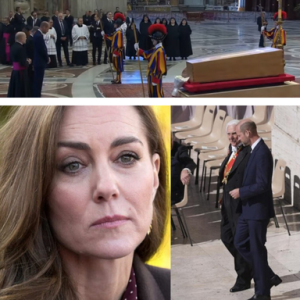In the glitzy world of Hollywood, where fame and fortune often mask darker realities, the recent revelations surrounding Dave Chappelle, Cat Williams, and Oprah Winfrey have sent shockwaves through the entertainment industry. For years, Chappelle has hinted at being blacklisted by powerful elites, and now, alongside Williams, he is pulling back the curtain on Oprah’s alleged chilling connections to the industry’s most sinister secrets. As the narrative unfolds, it raises critical questions about power dynamics, manipulation, and the cost of success in Hollywood.
Chappelle’s abrupt departure from the spotlight in the mid-2000s, particularly his decision to walk away from a staggering $50 million contract, has long been a topic of speculation. Many have wondered why a comedian at the peak of his career would turn his back on such a lucrative deal. The answer, however, is far more complex and troubling than mere financial considerations. Chappelle’s journey to Africa was not just a quest for peace; it was a strategic retreat from a toxic system that sought to control him.
At the height of his fame, Chappelle was not just a comedian; he was a cultural icon. His show, “Chappelle’s Show,” was a groundbreaking success, and he had the world at his feet. Yet, as he navigated the treacherous waters of Hollywood, he began to notice unsettling patterns. The industry, he realized, was not merely interested in his talent; it sought to exert control over his narrative and his identity. Chappelle’s refusal to conform to the expectations of the Hollywood elite led to a campaign to discredit him, branding him as “crazy” and attempting to manipulate public perception.
In his own words, Chappelle stated, “I wasn’t walking away from the money; I was walking away from the circumstances.” This statement encapsulates the struggle he faced—a battle not just for financial security but for his dignity, sanity, and family. Behind closed doors, powerful figures, including Oprah, were allegedly orchestrating a narrative that painted Chappelle as unstable, attempting to isolate him from his support system and the public.
Oprah Winfrey, once regarded as the untouchable queen of daytime television, has long been a central figure in Hollywood’s power dynamics. Her influence has allowed her to maintain a prominent position in the industry for decades. However, as whispers of her connections to the darker aspects of Hollywood grow louder, questions arise about the price of her success. Did her ascent to power come at the expense of others, including those who dared to challenge the status quo?
The entertainment industry is often characterized by a tight-knit network of elites who control the narrative, the finances, and the stars. Those who dare to speak out or challenge the established order risk facing severe repercussions. Chappelle’s refusal to conform to the industry’s demands made him a target. The elites wanted not just his talent but his very essence, and when he resisted, they sought to destroy him.
Chappelle’s experience is not an isolated incident. Cat Williams, another prominent figure in comedy, has also faced similar challenges. Both comedians have navigated the treacherous waters of Hollywood, where the stakes are high, and the consequences of dissent can be dire. Their stories serve as cautionary tales about the cost of success and the lengths to which powerful figures will go to maintain control.
As the narrative continues to unfold, it raises critical questions about the nature of power in Hollywood. Can one truly succeed without compromising their integrity? What happens to those who refuse to play by the rules? The stories of Chappelle and Williams highlight the importance of resilience and the courage to stand up against a system that seeks to exploit and manipulate.
In conclusion, the revelations surrounding Dave Chappelle, Cat Williams, and Oprah Winfrey expose the hidden battles that take place behind the glitz and glamour of Hollywood. As the industry grapples with these explosive allegations, it is essential to recognize the broader implications for artists and creators. The fight for authenticity, dignity, and control over one’s narrative is a struggle that transcends individual stories, resonating with anyone who has ever dared to challenge the status quo. As we continue to follow this unfolding saga, one thing is clear: the entertainment industry is in for a reckoning, and the voices of those who have been silenced are finally being heard.
**The Dark Side of Hollywood: Dave Chappelle’s Warning and the Fight for Control**
In a world where fame and fortune often come at a steep price, the story of Dave Chappelle serves as a cautionary tale about the hidden dangers lurking behind the glitz and glamour of Hollywood. During a candid interview, Chappelle made a shocking statement: “They were trying to kill me.” This was not merely the ramblings of a man under pressure; it was a stark warning to the world about the sinister forces at play in the entertainment industry.
Chappelle’s rise to stardom was meteoric, but it was also fraught with challenges. The very people who elevated him to celebrity status were, according to Chappelle, the same individuals attempting to break him down. The rumors swirling around his struggles point to powerful figures, including Oprah Winfrey, who has long been a central figure in Hollywood’s elite circles. Oprah’s connections to some of the most influential and controversial figures in the industry have led many to speculate about her role in the darker aspects of Hollywood.
Chappelle’s experience is not unique. Fellow comedian Cat Williams has been vocal about the industry’s manipulative tactics for years. Williams argues that Hollywood does not simply allow its stars to fall; it actively works to dismantle them, breaking them down before rebuilding them into compliant versions of themselves. “They were trying to break him,” Williams said about Chappelle’s downfall. “It wasn’t about $50 million; it was about control.” In an industry where questioning the status quo can lead to being blacklisted, Chappelle’s decision to walk away from a lucrative deal was seen as a direct challenge to the powers that be.
So, why did Chappelle flee to Africa? The answer is far more complex than a simple desire for a personal retreat. His trip was a strategic move to reclaim his life and sanity from the clutches of Hollywood’s elite. Chappelle’s declaration that “they’re trying to kill me” raises an important question: why was he targeted? The answer lies in his refusal to conform to the industry’s expectations and his willingness to walk away from the money and power that so many others covet.
Chappelle’s decision to prioritize his mental health and artistic integrity over financial gain was a radical act in an industry that often prioritizes profit over people. While stars like Mariah Carey have been celebrated for their commercial success, Chappelle’s choice to step back from the spotlight was met with hostility. Sources suggest that it was not merely his behavior that drew ire but his audacity to question the very system that figures like Oprah help maintain.
As Chappelle fought to preserve his career and sanity, Cat Williams was engaged in his own battle within the same industry. Williams has consistently supported Chappelle, speaking out against the dangers posed by Hollywood’s elite. He emphasizes that the real reason behind Chappelle’s departure was not just financial; it was about the manipulation and control exerted by powerful players in the industry. “People say he lost $50 million; no, that’s not even close to what happened,” Williams explained. The industry didn’t just blacklist Chappelle; it attempted to break him.
Williams himself has faced numerous challenges in Hollywood, from legal troubles to career setbacks, all of which he believes were orchestrated by those at the top. He has repeatedly highlighted how the industry works to tear individuals apart, with figures like Oprah playing a significant role in maintaining the existing power structure. “The elite don’t just control Hollywood; they control the narrative,” Williams has stated, a sentiment that resonates when examining the careers of those who dare to question the system.
As the story of Dave Chappelle’s departure unfolds, it becomes increasingly clear that the most powerful figures in Hollywood may not have the best interests of their stars at heart. The entertainment industry, often romanticized for its creativity and innovation, harbors a darker reality where control, manipulation, and fear reign supreme. Chappelle’s warning serves as a reminder that behind the curtain of fame lies a complex web of power dynamics that can threaten the very lives of those who dare to challenge it.
In a world where the price of success can be one’s sanity, Chappelle and Williams stand as beacons of resilience, urging others to question the system and reclaim their narratives. Their stories remind us that the pursuit of authenticity and mental well-being is a battle worth fighting, even in the face of overwhelming odds.





